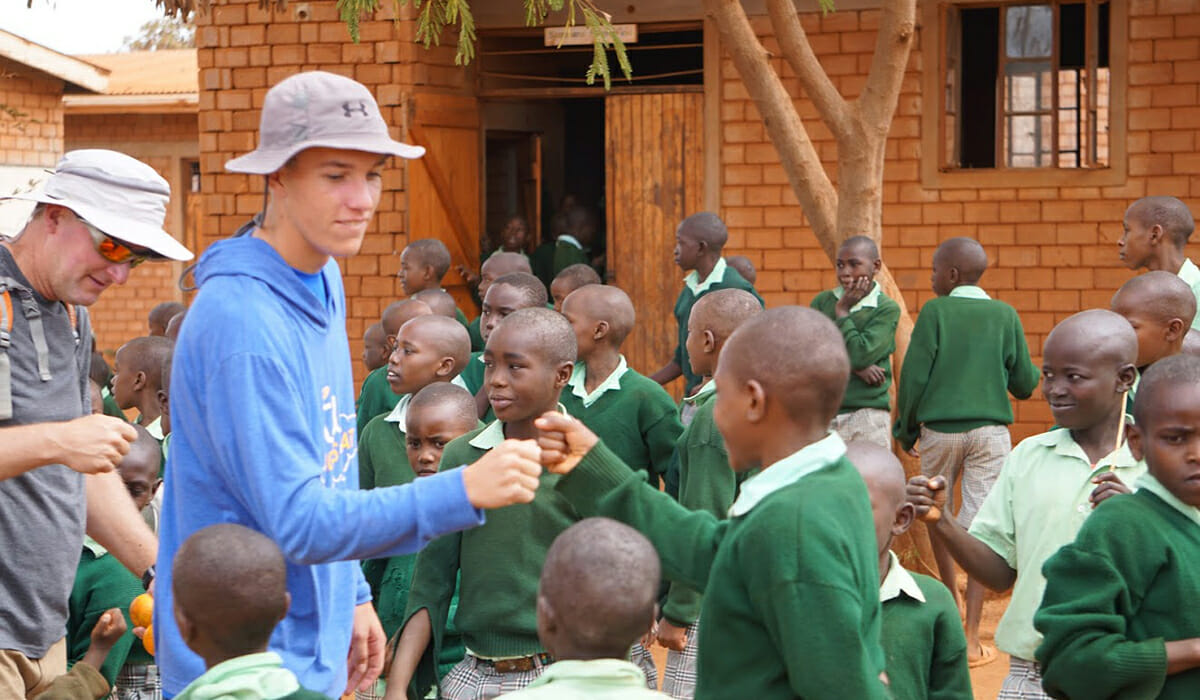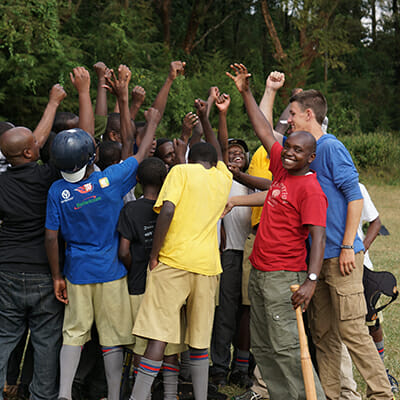College Student Sends Baseball Equipment to Underserved Communities in Africa

Meet Daily Point of Light Award honoree Max Bobholz. Read his story and nominate an outstanding volunteer or family member as a Daily Point of Light.
When Max Bobholz’s coach passed away, the 12-year-old baseball student was trying to find ways to work through his grief. He witnessed the Uganda team become the very first baseball team to represent Africa while watching the Little League World Series. The team from Uganda, however, lacked equipment. They only had seven gloves to share between the entire team and not all of the players had uniforms or hats.
Max knew he and his friends had spare equipment in his garage so he decided to gather any extra equipment and send it to the Uganda baseball team. For the next two years, sending extra baseball equipment became his mission. The idea has since grown into Angels at Bat, an organization that has sent about 10,000 pieces of equipment to Africa. The group is currently sending equipment to Kenya and Nigeria and working to expand to other African countries.
Friends and family supplied the majority of the donations in the early days, then word of mouth carried it throughout his hometown, the state and now, onto a national level. In the early days, Max was trying to figure out how to coordinate getting the equipment to a team.
“We had all this equipment and we were just trying to get it to someone,” says Max. “And so when we finally reached out to someone and they invited us to go to Kenya – I said yes. I wasn’t going to turn that down. My mom and I packed 19 suitcases, all filled with baseball equipment we had fundraised to pay for the extra cost.”
The first trip to Kenya inspired Max to continue sending baseball equipment to underserved communities, and knowing he could do more to help, Max continued to grow his nonprofit.

Shipping equipment to the teams is a challenge. Usually, a team will reach out to Angels at Bat through email, and then Angels at Bat coordinates with the team to ship the equipment to their area. Sometimes, the team has a family member traveling from the U.S. In that case, Angels at Bat puts together a few suitcases of baseball equipment to send with the family member back to their hometown. They’ve also been able to make a few freight when they’re sending equipment to an area they don’t normally service.
“It’s not always easy for [Angels at Bat] to send equipment through organizations that offer that service,” says Max. “It’s either not affordable or we can’t work with them. It’s not always cost-effective.”
Max has connected with a group in Connecticut called American Friends of Kenya to help make larger shipments to communities. He and his dad – and other family members who help with the nonprofit— drive from Green Bay to Connecticut with a U-Haul filled with baseball equipment. Six months later the equipment arrives in Uganda.
Max acknowledges that he tries to find a balance between managing his nonprofit and college. However, he says college often takes precedence over nonprofit.
“I don’t want to say [Angels at Bat] is a hobby because it’s really become a passion,” says Max. “When I’m doing schoolwork, I choose to work with the nonprofit expanding whatever way possible. I’m always emailing people who want us to ship equipment. Whenever I have a free weekend I spend it with the nonprofit.”
Max says the number one thing Angels at Bat needs are donations. “We’ll always accept equipment donations. But that’s the easiest thing to get. Right now, we really need monetary donations.”
He continues to grow his nonprofit and spread the joy baseball to underserved communities.
Do you want to make a difference in your community like Max? Find local volunteer opportunities.
